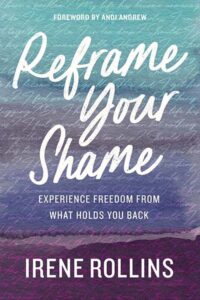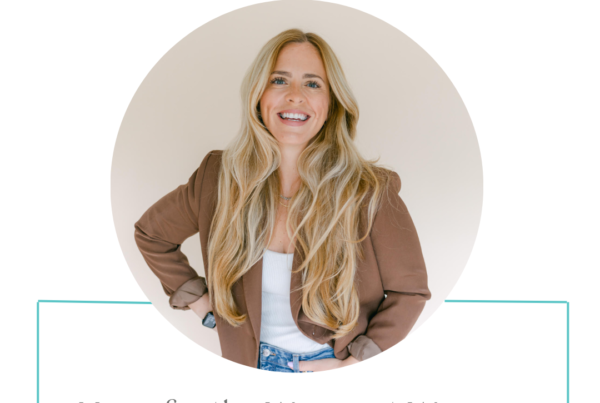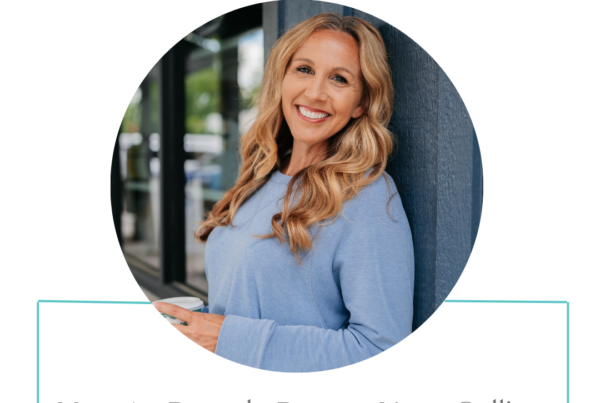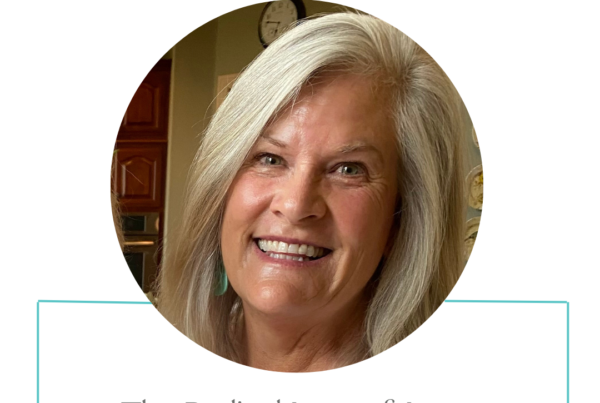What could your life look like if you broke free from co-dependent patterns and relationships and healed from your addictions? Our co-host, Christie Myers, talks with Irene Rollins, author and certified Emotional Intelligence Coach. Irene’s fervency to help others overcome their self-defeating habits comes from her life experience as an overcomer of alcohol addiction and trauma. Irene shares her journey from healing from co-dependency and alcoholism and how God took her greatest shame and turned it into purpose. By sharing her own experiences, Irene helps us recognize how co-dependent behaviors such as always putting others first and not honoring ourselves lead to stress, burnout and resentment. Be inspired to make transformational changes and take responsibility for your own journey of emotional healing and growth. Through the power of God at work in your life and a personal commitment to growth, you can overcome any addictions, heal from unhealthy patterns and live a more wholehearted life.
Get the show notes at wonderfullymade.org. Support our ministry here.
—
Watch the episode here
Listen to the podcast here
Healing From Co-Dependency And Shame — With Irene Rollins
How often do you feel that you want to be seen, understood, and accepted for who you are, but maybe you feel the opposite? In this episode, we are going to talk about reframing our shame, coming out of hiding, and overcoming self-defeating habits. As children, many of us became accustomed to hiding our true selves and our needs. Some of us hid behind performance, achievement, image, or pretending to be okay when we really weren’t.
Some of us hid behind things that numb, like alcohol, eating, not eating, or the endless scroll of social media or TV. Some of us are still using these things to cope with shame and pain in ways that leave us feeling anxious and exhausted. A lot of times, it’s a part of our culture to do that. If you’re here and struggle with hiding or shame, I believe that this conversation is going to encourage, inspire, and give you some clarity to take the next brave step toward healing. We have the most fabulous woman here with us, Irene Rollins. Irene, hi.
Thanks for having me.
I’m so happy you’re here. I’m going to brag about you for just a second. Irene serves as a certified Emotional Intelligence Coach. She is the author of her new book, Reframe Your Shame: Experience Freedom from What Holds You Back. I have read parts of Irene’s book, and don’t miss out. Read this book. It’s so full of wisdom. Your story is so captivating throughout this whole book, Irene.
Thank you. To God be the glory for that.
Irene, your advocacy to help others comes from your experiences as an overcomer of trauma and alcohol addiction. I’m excited for people to learn your story, how you overcame it, and your ministry now in helping other people do the same thing. One of the opening statements in your book captured me. I want to know your perspective and more about this.
The quote is, “The things we hope, believe, pray for, and receive can also cause stress in our lives.” You are the leader at a megachurch. You described your life as the white picket fence, three kids, married to a full-time pastor, but you were hiding behind alcohol addiction and experiencing extreme burnout. Will you open us up by sharing about that time in your life and what was happening to you?
I was in my early 30s, and my husband and I relaunched his parents’ church. They handed their church over to us, and we completely rebranded and relaunched it. We had the kids. We had prayed to help God’s people. We had such a zeal to see people set free and know the freeing power of Jesus Christ. We’re leading this church. With our kids, I prayed for these amazing humans that God had gifted me with and had them. The things that I prayed for, like a wonderful ministry and marriage, were stressing me out to the point where I was burning out. Here’s the thing. I didn’t realize that I was functioning out of a codependent source for my motivation behind everything I did.
I was worried about everybody else and taking care of everybody else. That’s why the ministry was the perfect fit for me because, as a shepherd, I get to care for everybody else. The disease, as I call it, of codependency, which is others focused versus valuing and honoring self, and this dysfunctional way of relating with oneself starts in our childhood and upbringing. It fractures our growth and development as human beings. Here I am in my early 30s, and I have no idea how to cope with my inner life and my burnout. I’m taking care of everybody else, detached from myself.
We reintroduced alcohol, and I say reintroduced alcohol because I drank like nobody’s business. I abused alcohol throughout my teenage years. My first drink was at ten years old when I lived in Africa. I helped myself to my dad’s Guinness. He didn’t know. I didn’t know I was altering my brain chemistry at a young age. When I get to boarding school and high school, I’m abusing alcohol. If you drink, you drink to get drunk, blackout drinking. It’s super dangerous and horrible.
I find Jesus at 21. I got married and started having babies. That was my high all through my twenties, getting a house, and having children. I lived off that high. At 28, I had my last kid, and that high came down. There wasn’t anything else. I didn’t realize I felt this void. When we relaunched the church, I got a new high. This time, it came with a massive weight of the responsibility of leading a church and God’s people.
The church was exploding. It was thousands of people. I loved what we did. I just didn’t know how to take care of myself emotionally. I didn’t know how to deal with betrayal and all the people we had to bury. That’s something that they don’t teach you in Bible college. My husband went to Bible college. I didn’t. People die. I had been to many funerals, but Jimmy’s parents took care of that. When it was our responsibility, children, young people, and old people, I didn’t process the grief. I was a mess, burning out from overdoing it, taking care of everybody else, including the kids, following Jimmy’s dreams, and never tapping into my own.
I felt like I lived to serve everyone else, but then I silently resented everyone because Jimmy took care of himself. The church people could go home and have somebody to come do their funeral, do their visits, and come to their baby showers. I went home miserable. I had a lot of blame for other people, but then I hid in shame because I never felt like I was enough for what I was doing. I was miserable. When we went on vacation, I was 32 years old. We were like, “What’s the big deal with alcohol? Let’s have a drink.” It’s because I hadn’t drunk since I was 21. That fateful day, we allowed something back into our life.
I had no idea that the disease of alcoholism had already started way in my formative years. When I reintroduced it back, it was a six-year period of time before I crashed and burned. It started out with a glass of wine, cooking dinner, to a bottle. I have a high tolerance. A bottle and a half weren’t enough. Suddenly, I’m having blackout nights. Suddenly, I’m having nights where I celebrated if I had a dry night where I didn’t drink at all. I’m not an alcoholic because I had a dry night. My dependency increased because I kept drinking on the weekends and in the evenings. I couldn’t wait to get home. During the day, I’m functional. I had no alcohol. It was on evenings and weekends that I would start binging.
Over that six-year period, Jimmy and I started arguing about year three. He’s like, “You’re drinking too much.” I’m like, “No, I’m not. You’re controlling. Stop trying to take away my best friend. This is the one thing I have.” I started hiding alcohol like vodka in water bottles and things like that. In the last three years, I didn’t know what addiction was because people don’t talk about it, especially not leaders in church and moms. I’m a mom. God gave me these beautiful children that I prayed for. Here I am, blackout drinking to the point where when Jimmy would go out of town, I would take advantage of my binging.
I’d pass out, and the kids would find me in the bathroom, passed out on the floor, and not know what to do. It was super scary. That was a trauma for these very children that I prayed for and God gifted me with, and here I was hurting them. Talk about shame. Now my husband’s giving me an ultimatum like, “Go to rehab and get better, or I’m out.” The arguments were damaging our children and us. I ended up in rehab, which dealt with trauma. They dealt with addiction through the lenses of trauma.
By dealing with my getting sober and then dealing with the codependency, the childhood wounds, the sexual abuse issues, and all of the trauma, like verbal and physical abuse, I reframed everything that the enemy meant for bad. It got shifted to, “This is what’s healthy. Go and tell the world about it.” Rock bottom was the best thing that ever happened to me. I took my husband and children along the journey with me, all of us in counseling and support groups, doing the holistic approach to healing. I now got to give it away. That’s where I’m at in my life. God is using my greatest shame and turning it into purpose.

Co-Dependency: Reframe everything that the enemy meant for bad. Shift it to, “This is what’s healthy. Go and tell the world about it.”
Irene, I was sharing with you before we hopped on the interview. That line of, “God taking our greatest shame and turning it into purpose,” if there’s nothing else that anybody reading here with us takes away from this, please take that away. God wants to take your greatest shame and turn it into purpose. He absolutely will. You got to give it to him first. I want to talk more about that.
This issue of codependency is an interesting one. This issue of codependency can be a hidden one that we don’t even know we’re dealing with until somebody explains to us what codependency is and the impact that it has on us. Take us through what codependency is, how it impacts us, how it stunts our adult development, and whatever else you want to share.
My understanding of codependency always was that you’re drowning and worried about saving someone else. It’s others-based. Pia Mellody, who was on the board over my treatment center, wrote a book called Facing Codependence. That’s the first thing they give you when you get to that particular rehab, The Meadows Treatment Center. The reason why is that they believe it’s the root of all addiction. It’s this fracture in our development or our childhood. We all come from dysfunctional families. There’s no perfect parent or family situation because we’re imperfect humans.
Our experiences in our childhood with our caregivers are what shape us into who we are as adults. If our caregivers were not nurturing and we didn’t experience nurturing, then we don’t know how to nurture ourselves, let alone someone else. If we don’t acknowledge our shame, pain, feelings, and emotions, label them, and process them with our words, we get stunted in our growth process.
I want to look at codependency as instead of having self-esteem, you have others’ esteem. How other people felt about me is how I felt about myself. I didn’t have to get spankings. I got them. I didn’t have to because I was so afraid of being this thing I made up in my head that I was not enough, broken, a terrible person, and a terrible human being. I didn’t want it to be true.
Getting in trouble with my parent became an adult who didn’t grow up. I’m married now. When my husband would get upset with me because I blackout drank, I became the little girl again who didn’t know how to process the shame of it and felt like I’m bad. That’s what codependency does. Our processing and relating with ourselves, with others, and with God gets broken because we don’t have self-esteem. I don’t honor me. I don’t take care of myself. I take care of everybody else, but then I resent it, so it leads to depression, anxiety, burnout, exhaustion, and addiction. It’s all connected.
It’s that word honor. You’re a coach, and I’m a coach. Other coaches talk about this concept of honor and how important it is in our healing process and fulfilling relationships. Will you talk about what it looked like? What was your journey from codependency to honoring yourself? What changed?
First, it’s learning the basics of what codependency is. I needed teachers, books, and that type of thing, like their podcasts. We are growing at a snail’s pace in the area of codependency. There aren’t enough therapists out there who even know enough about it because the definition of it is evolving as humans evolve. We’re not trauma-informed and codependency-informed.
I hit this point where I didn’t have the skill or the tool to take care of myself. I was completely detached from myself. My journey started with hitting rock bottom, recognizing that I was codependent and that it was not going to be a one-time counseling session or a one-time trip to the altar where I cried and left it at the feet of Jesus, though I did do that part. That part is important, and so is the counseling, but I needed to accept the fact that it was going to be a forever journey.
I’m in recovery from codependency. Every day, I have to build my resilience to codependency because my mind wants to go straight to ignoring myself and straight to taking care of someone else. When I don’t honor myself, I will say yes to things that I don’t want to say yes to because I’m worried about pleasing someone else. I will say yes to my husband, our schedule, our pace, what we’re eating for dinner, and where we’re going on vacation. It’s all others based. What a miserable life. I didn’t even know what my favorite color was. It’s like, “Whatever Jimmy says.” It’s such a miserable life not being whom you are authentically created to be.
When you don't honor yourself, you will say yes to things you don't want to say yes to, just because you’re worried about pleasing someone else. Click To TweetMy journey starts with knowing what codependency is and acknowledging that I struggle with it. Melody Beattie is an incredible resource with Codependent No More. I did her The Language of Letting Go devotionals for three years in a row, every single solitary day when I got into recovery. I went to Co-Dependents Anonymous. I did a twelve-step program around it. I dealt with it in counseling. I have my codependency accountability people whom I can call now or text and say, “Check me in this. This is what I’m thinking. This is what I’m feeling. This is what I’m going to do. Am I being codependent?”
They check me. I know how codependency feels in my body because the little girl that was abused and disconnected from her body disassociated to survive. This Irene that has finally grown up, and I talk about this in my book about going and healing the little girl. As I healed the little girl, now I know that uncomfortable feeling that was happening inside of me that I thought was anxiety is just me not honoring myself.
I can feel it in my gut. I’m like, “What is this?” I used to drink at that feeling. Now I look at it and like, “Where is this coming from? What is this saying? Am I saying yes to something I should be saying no, later, or maybe to?” I put it in my hands and looked at it. I ask myself questions like, “Is this a good use of my time? How does this align with my value system? I have goals and visions for my life that God has given me. Is this a good thing, but it’s taking me off track? Is it keeping me on track, and it’s going to add value to my life, and I’m going to add value to it?”
I ask myself all to get curious, “Where’s this coming from?” The more I get curious, I’m able to weigh it. I needed Jimmy. I needed friends to hold me accountable. I needed my counselor for a long time to help me process this thing, to land in a place of health and something that I could feel comfortable with. When I make the decision, I feel this release in my body because I’ve honored myself. I care less and less over time what the person thinks about why I made a choice.
I painted a picture verbally of what it looks like to journey through a codependent moment. I had them back to who I was. All my neuropathways knew was codependency. To retrain the brain takes practice. It’s not a one-and-done. I follow people on social media that are getting free from codependency and taking master classes. There’s Pinterest. I pin all the time quotes to keep me like, “Irene, that’s how you’re reframing something in your brain and looking at it from a different perspective.” Now I can see codependency a mile away, and I’m like, “You’re not going to have me.” I still have my moments. Recovery is not perfect, but I know what it looks like now. I’m not going to let it get me again.
This is gold and diamonds, people. This statement is staying with me, “It’s healing the little girl.” That is right to the heart in this concept of honoring ourselves. It makes sense. When we’re little, we can’t take care of ourselves. We have to play with the surroundings and people around us. If it’s not safe to share our feelings, the smart thing to do as a little girl is not to say anything because you don’t want to get in trouble, be rejected, or whatever. We grow up with these habits and are like, “This isn’t working anymore. What is this feeling that I feel? What’s showing up in my relationships?” Will you talk with us about healing the little girl and the role of healing from shame in healing the little girl?
First, at that moment, when you’re feeling something, you’re triggered. Let’s say you’re watching a movie. For me, I couldn’t watch certain movies or TV shows because if it got to a part that reminded me of something that was undealt with from my childhood. I had an acute response physically to it. I didn’t know what to do with it. I’m like, “Turn it off.” That’s a perfect example of taking that moment, and now recovered Irene says, “Why did I feel that? What am I reminded of? Where did this come from? What’s coming up for me?” It’s where it did come from, what’s coming up for me, and then I see the little girl.
I was reading a book by John and Stasi Eldredge. It was talking about a little girl spinning around in her dress. All she wanted was for her daddy to say, “You look beautiful.” It makes me want to cry thinking about it. I read this book, and the Lord showed me that’s what I wanted. I wanted my dad to tell me that I was beautiful. Here I was, feeling shame from being promiscuous all through my teen years. I was looking for love in all the wrong places. What I really wanted was for my dad to say how beautiful I was, check in on me, and say I was valuable. When I was reading that book, it exposed to me that the little girl needed healing. We went back there with my counselors in therapy.

Co-Dependency: I felt shame for being promiscuous all through my teen years. I was looking for love in all the wrong places, but what I really wanted was for my dad to say how beautiful I was and to check in on me and say I was valuable.
We went back there, and I had to visualize myself as that little girl wanting attention from my dad. I began to give her attention and talk to her, “Your daddy loves you. He had to go away to work overseas. He wasn’t trying to abandon you. He had to work to provide for you,” because I made up that I wasn’t pretty enough for him to stay home with us because I missed him, and I was hurt. I felt rejected and abandoned. That wasn’t the truth. The little girl needed to know that her daddy loved her, that she was beautiful, and that he went away to work so he could support the family. There were six kids. I didn’t know I was believing that script for so long until the trigger moment happened. It’s the a-ha God moment. He opened my eyes, but I didn’t know what to do with it for so many years.
Therapy comes into play, and they help me walk through reparenting. Now that I have done it in counseling, I know how to do it on my own. I’ve got books and resources. I’ve trained my brain to reparent the little girl. I’m always healing. I can see it in ministry. When I’m ministering to people, the Holy Spirit will give me thoughts like, “Why don’t you tell that person they’re beautiful?” and they break. I’m like, “What is it that you’re feeling?” It’s an opportunity for God to take something. They’re like, “I’ve always wanted to hear someone say that about me and mean it, but I need to believe it for myself.” I’m like, “This is the beginning of the work because now we have recognized where the wound is.”
The shame I carried for so many years into my marriage about my choices as a young lady, now I knew where it started. It was that nine-year-old little girl who felt rejected and abandoned by her dad, had no self-worth, and looked forward in all the wrong places. God can heal that too. He can make beautiful what the enemy tried to shame me with a promiscuous past. I married a man who had saved himself for marriage like me. I didn’t think I was worth that because of my past. Here I met this guy, and I never felt I was good enough until I hit rock bottom, got the treatment, started reframing my shame, and realized that what we have is so special.
God gave me something so much better and restored my virginity on my wedding night, and all of those things that I can look back on as truth, not the shaming message that I had given away the most valuable thing to other guys. God forgave me. He restored that in me. My husband and I have something super special that nobody else but us experienced together. It is possible to get there. It’s a long explanation, but it’s a journey. It’s not one-and-done. You’re working this out. You’re praying about it. You’re journaling, talking with your girlfriends, sharing resources, and talking with your therapist. The renewal of the mind happens over a process.
In this day and age, with all the stuff women are carrying, we’re exhausted and burnt out. The things we prayed for are stressing us out, and we feel shame about it. It’s like, “Let’s talk about it. Let’s resource, share, swap notes, and do what women did way back in the day when they were taking care of their households and spending time together.” They talked about what it meant to be a woman and the things that we carry. Honey, that’s normal. Don’t shame yourself about that. I feel like we have to get back to that.
That’s what your show is all about. It’s getting back to that place of womanhood, sharing, connecting, and realizing you’re not alone in what you’re walking through. Somebody’s been there and done that. Stop shaming yourself about it. Shame says, “I am bad.” How about we reframe that thing and say, “I had to go to rehab. I hurt my kids.” I used to feel shame about it. Now I feel acceptance that it happened, but they forgave me, and God forgave me. Now I am free, and we are better. That’s a better thing to land on than, “I am bad.”
Shame says, “I am bad.” How about we reframe that and say, “I had to go to rehab. I hurt my kids. I used to feel shame about it. I accept that it happened. They forgave me, and God forgave me, and now I am free, and we are better.” That's better to… Click To TweetThere’s so much in what you’re saying. I want to highlight a couple of things I’m hearing. One is the self-awareness piece. We go from this unconscious place where there’s something cycling through our head that’s bad. We don’t even know it’s there. We’re just, “It’s Tuesday.” That script is going, and we’re like, “Why do I feel like this?” We either gradually or one day through doing the work, as you put it, realize, “The story I’m telling myself is that there’s something wrong with me. Where is this coming from?” We can then go to inquiry and go back, probably with the help of someone who knows Jesus and is qualified in what they’re doing at first.
As you said, after we get some practice, we can do it ourselves. It’s to go back there, inquire, ask the Lord, and realize, “There’s nothing wrong with me. I’m good.” That self-awareness and healing piece are so good. The honoring part, to me, is so important because you mentioned another book, The Body Keeps the Score, which I want to read. It has come up a couple of times. Like you’re saying, I can feel in my physical body now that I’m not honoring myself. We have to pay attention to ourselves first to realize this isn’t just, “I’m going to feel exhausted every day. I’m going to feel X every day.”
That is not the way that God intended for me to live. There might be seasons of that depending on what season we’re in our life, but even in the hard seasons, we don’t have to go through them feeling exhausted every day. That’s an indicator that something else is going on, or like you said, “I feel like in my chest, that wasn’t good. When I honor myself, I feel a sense of release in my body.”
There’s a therapy called somatic therapy. You can look it up. You can find a therapist that specializes in that and can help you learn that skill. It’s a skill. Can you imagine teaching our kids this stuff? That’s why my kids have been a part of my journey. We’re breaking generational curses by acknowledging pain, emotions, and addiction, explaining and talking about trauma. My kids are so emotionally intelligent. When we normalize these things, what you explained about, recognizing, honoring, and all of those things, I’m like, “What’s going on with that guy you liked at school?” and my daughter’s like, “He’s not emotionally available enough. I’m over him.”
I’m like, “Tell me more about that.” She starts talking about how he’s not attentive and this and that. I said, “I am winning. Thank you, Jesus.” What the enemy meant for bad, God is surely using for good because the little girl, Irene, who didn’t know how to care for her own emotional world has now been able to teach the next generation how to acknowledge, recognize, and honor it. She’s like, “I’m worth too much to attach and connect myself emotionally to somebody who can’t respond.” We got to normalize all of this. I’m having a bad day, and it’s okay. Normalize it. We’re allowed to say it.
Nobody said you had to be a superwoman. You’re allowed to have bad days. You’re allowed to make mistakes. Show your kids. Tell them you’re sorry. Tell them mom had just flipped off the wall like, “I lost it. I need a minute. I’m overwhelmed. Give me ten minutes, and I’ll be back with you. I’m so sorry that I yelled.” We’re showing them our humanity and our brokenness. Not that parents are supposed to be perfect. Jesus did this for us. He showed us that he could experience shame, the humiliation of the cross, the pain of it, and endure it. Look to the Father and the joy that was before Him, and then He could get through it and process it. Now He’s seated at the right hand of the Father.

Co-Dependency: Nobody said you had to be a superwoman. You’re allowed to have bad days. You’re allowed to make mistakes.
Where the double portion of honor that the Bible promises us is on the other side of acknowledging. That’s what he did in the garden. He’s like, “This is going to hurt. I don’t want to do this.” He identified with every feeling and emotion we ever have experienced or will experience, but He didn’t sin. He was still perfect, but He loved us so much that He experienced it for us so we could experience the same resurrection here on earth and be honored with Him in heaven with everlasting life.
I want to double down on this beautiful gem in what you’re saying about God does not want us to live in guilt and shame. Sometimes, as Christians, we can live in this place of beating ourselves up. The line we use a lot is, “I don’t deserve this.” We’ve been given a lot of things that we don’t deserve, but God doesn’t want us to live with that mentality. That’s not why Jesus died. Jesus died so that we could honor ourselves and we could see that God made us good. That coming home to him is where it’s at.
I don’t have to have this mindset of, “I’m unworthy. God is mad at me for my sin,” and all these crazy things that are essentially bad theology. It’s that thought of Jesus understands. Jesus honors me. Jesus will not speak to me in a false identity I’m carrying around. He will speak to me with a true identity, which means that I can come to him and tell him exactly how I feel. That’s when I will hear him clearly. It’s all that stuff. I could go up on a lot of rabbit trails that I’m so tempted to, and I will not because I have two more questions for you. Second to the last question, what about Jesus has surprised you over the last several years?
I would say the word grace, his grace being sufficient for us. In 2 Corinthians 12:8, the Apostle Paul says, “Take this thorn in my flesh away.” I could say, “God, I don’t want to be an alcoholic.” Shame had me. I’m like, “That’s not me.” I finally acknowledged that I was an alcoholic. The words that he says in that Scripture to the Apostle Paul are, “My power is perfected in your weakness.” The Passion Translation says that your weakness becomes a portal for God’s power. When I say I’m an alcoholic, I have now reframed the shame. I say, “I am not bad. I just have a problem with alcohol.”
I can’t ever drink again because I’ve altered my brain cells. Chemically, that substance makes me crazy. I can’t just have one. That doesn’t mean I’m bad. I can say it out loud. Every time I say my weakness, I feel the grace of God come over me. I feel strength. First of all, I feel a weight come off me when I admit it, and then I feel the strength of his grace. Jesus, over several years, His grace being sufficient has been my big revelation. His grace applies to me, too, not just to the people in my church. Not just my kids. For some reason, when you’re walking and living in shame, you feel like you’re so bad and flawed that somehow God’s grace doesn’t apply to you. That was me.
His grace and mercies are new every morning and sufficient for me. There’s nothing that can separate me from the love of my God. Nothing I have ever done or will do. Readers, not one thing can separate you from the love of God. There is no condemnation for those who are in Christ Jesus. I will not cheapen the work of the cross by saying His grace doesn’t apply to me. I had to repent for that. God forgive me. If you died to forgive us of our sins, when I say, “I’m not worthy,” I’m saying, “You died for no reason.” I had to switch that. When that hit me, I was like, “No.”
I have a little note on my computer. It is Lamentations 3:22-23. You quoted it, “The faithful love of the LORD never ends! His mercies never cease. Great is His faithfulness; His mercies begin afresh each morning.” One last question, if you could give your younger self some words of wisdom, how old would she be? What would you say to her?
I would say to my nine-year-old self that you are worthy of love and that you are enough. I would affirm her. I would tell her everything is going to be okay. I would tell her it’s okay that life and people hurt you. You’ll experience pain in your life, and that’s normal, but you will grow from it. You will get better. You will experience joy and happiness when you acknowledge that the hurt happened. It’s, “Everything’s going to be okay,” mantra. When I was climbing Mount Kilimanjaro, our guides would say to us, “Polepole,” in Swahili, which means, “Slowly,” because you have to respect the mountain. If you go fast, you’ll get altitude sickness and get sick.
You'll experience pain in your life, and that's normal. You will grow from it, and you will get better. You will experience joy and happiness when you acknowledge that the hurt happened. Click To TweetI equate the mountain to recovery and the mountain of life, whatever circumstance we’re experiencing and facing, that feels like a mountain to us. For me, it was alcoholism. For you, it might be overworking. It could be hurt like divorce. It could be a hang-up. Hang-up would be like unforgiveness, bitterness, resentment, or a habit, substance, place, or thing that’s out of moderation in our life that’s addictive in nature.
You were saying that you would tell that nine-year-old girl that in life, you will get hurt.
You will have hurts, hang-ups, and habits, but it’s all about how you care for that. Honor it, take care of it, process through it, and you’ll experience joy. I would tell that little girl, “You have ADD, and it’s okay.”
I love it. We’re keeping it real. That’s so beautiful. Irene, you’re amazing. This book is a wealth of knowledge. Not only is it captivating to read your story, but also all of the tools that are in there. Hopefully, as you read this, you’ve picked up on some of these tools. Try this at home. We love you. Irene, thanks for being with us.
Thanks for having me. I pray to bless all the readers in your journey. Take it polepole, slowly.
Important Links
- Reframe Your Shame: Experience Freedom from What Holds You Back
- Facing Codependence
- The Meadows Treatment Center
- Codependent No More
- The Language of Letting Go
- Co-Dependents Anonymous
- The Body Keeps the Score
- Support our ministry here
About Irene Rollins
 Irene is passionate about the physical, mental, emotional, and spiritual health of all people. As a certified Emotional Intelligence Coach, she loves to study human behavior enabling her to understand a wide variety of people, guiding them to be the best version of themselves through her teaching, writing, and coaching. Irene’s fervency to help others overcome their self-defeating habits comes from her life experience as an overcomer of alcohol addiction and trauma. Irene models accountability and often reminds those in the addiction community to “do the work” and “If you aren’t working on your recovery, you’re working on your relapse”.
Irene is passionate about the physical, mental, emotional, and spiritual health of all people. As a certified Emotional Intelligence Coach, she loves to study human behavior enabling her to understand a wide variety of people, guiding them to be the best version of themselves through her teaching, writing, and coaching. Irene’s fervency to help others overcome their self-defeating habits comes from her life experience as an overcomer of alcohol addiction and trauma. Irene models accountability and often reminds those in the addiction community to “do the work” and “If you aren’t working on your recovery, you’re working on your relapse”.




